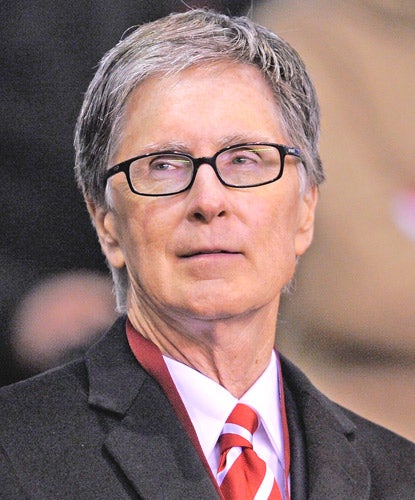Uefa 'to close loopholes' if clubs dodge financial rules
We will ask to see books to ensure everything is above board, says European game's governing body

Your support helps us to tell the story
From reproductive rights to climate change to Big Tech, The Independent is on the ground when the story is developing. Whether it's investigating the financials of Elon Musk's pro-Trump PAC or producing our latest documentary, 'The A Word', which shines a light on the American women fighting for reproductive rights, we know how important it is to parse out the facts from the messaging.
At such a critical moment in US history, we need reporters on the ground. Your donation allows us to keep sending journalists to speak to both sides of the story.
The Independent is trusted by Americans across the entire political spectrum. And unlike many other quality news outlets, we choose not to lock Americans out of our reporting and analysis with paywalls. We believe quality journalism should be available to everyone, paid for by those who can afford it.
Your support makes all the difference.Uefa warned yesterday that it is preparing to close any loopholes which might persuade clubs to believe that they can evade new financial fair play rules, which could see them banned from European competition if they fail to break even.
There remains scepticism in some quarters about the strength with which Uefa will impose the rules. However, the European governing body's head of club licensing, Andrea Traverso – the man tasked with introducing the system by president Michel Platini – could not have been more unequivocal yesterday about Uefa's determination to prevent clubs' owners sidestepping them. Clubs could theoretically do this by generating under-the-counter income by using companies related to them to invest vast amounts in a naming rights deal.
"Should the clubs put in place specific structures that allow them, in ways we didn't think about, to easily go around some of the principles, we could amend these rules to catch up with these situations," Traverso said. "You can call them loopholes but you can call them as well an evolution of the market which could not be taken into consideration at the time the rules were drafted."
Uefa will demand to see clubs' books to establish the level of naming rights and sponsorship deals and how they are being accounted for.
Traverso delivered his declaration of intent in a presentation at the Soccerex conference in Manchester in which he appeared to offer some hope to clubs who may struggle to break even in time to avoid a European ban – Manchester City have two years to make good on £133m losses, for instance – by declaring that it may take some time to establish whether a vast investment by an owner's affiliate company was deliberately inflated to help them break even and did not represent an acceptable market rate.
Liverpool's new owners, Fenway Sports Group, have said their interest in buying the club had been influenced by a regime which allows them to compete with bigger earners, and managing director Ian Ayre yesterday revealed his club's concern that the rules will be flouted. Ayre confirmed Liverpool were pursuing naming rights for a new stadium or a redeveloped Anfield and was concerned that British clubs should not be put at a disadvantage, by the Premier League adhering to the regime while other countries' leagues are less scrupulous.
Ayre said: "These rules should be rules and should be hard and fast. What will kill the initiative, or certainly stifle it, is people easing themselves into it rather than the rules applying and everyone operating within them. The rules should be clearly defined, you cannot have a half-rule process.
"We see it as a positive step but the reservations around it are the proof of the pudding being in the application, how it will be applied – will people be given grace periods, will the sanctions be applied?
"The question is, will it be as fairly applied? If the Premier League takes a very serious and professional view and does it properly, does it put itself at a disadvantage?"
Clarke Carlisle, the Burnley defender who is chairman of the Professional Footballers' Association, said he supported the measures but feared it would see players forced out of clubs as they try to have smaller squads. Carlisle said: "As the players' union, we support it 100 per cent to ensure a level of stability for our national game. The only slight reservation is we don't know the full ramifications. The first thing clubs will seek to redress is the wage bill and you will see players trimmed from squads."
Join our commenting forum
Join thought-provoking conversations, follow other Independent readers and see their replies
Comments